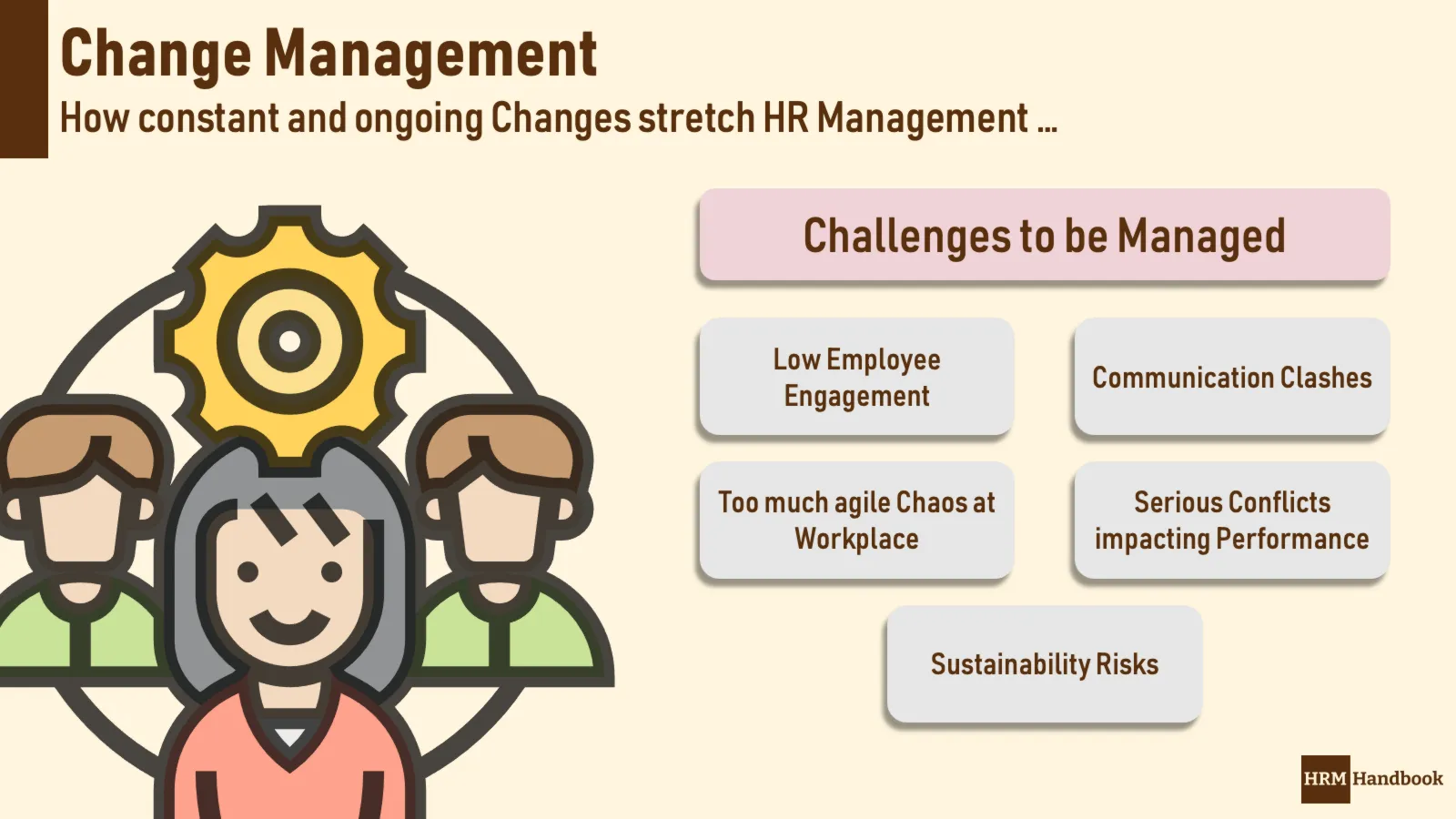Change Management
Competition is increasing in all areas of business. Everything around us is changing right before our eyes. Business is no longer the same every day, it is constantly changing and this puts constant pressure on companies to change, adapt and eventually take the lead. Fortunately, human resources are a force for competitive advantage and dramatic change. It is the people in an organization that bring about fundamental shifts and transformations. No computer can implement solutions, only humans can. A computer can do exactly what it is programmed to do, but the creative superstructure still has to be delivered by a human. It’s just that we humans hate change, we like our security and we don’t want to live in a constant sense of danger. This is a huge challenge for Human Resources staff.
Simply put, Human Resources and Program Managers are “destined” to work closely together. They have a shared interest in making sure the change goes well, is implemented successfully, and that employees get used to the change in their work and start using it every day.
This builds a close and reciprocal relationship between HR and change management. Every program manager should be a close friend of the HR Business Partner in the company. They should have a trusting relationship and coordinate their actions so that there is no breach of trust. In the end, it’s a win-win situation for both parties and is very beneficial for the leadership team as well. It allows them not to worry about all the small items of the strategic agenda. On the other hand, change management also poses a significant challenge for the HR department.
Most leaders come up with change as a solution. They expect HR to support the effort to make the new vision a vibrant part of corporate life. All HR managers need to develop advanced skills and competencies in advocacy and change management. They often act as change agents in departments; promoting the benefits of the new vision. They communicate progress and gain approval from managers and employees. They also manage expectations and measure the climate in the corporation.
We must accept the increasing speed of change in modern competitive business. Innovation and new product development are the best tools to keep a company healthy. High performing organizations always value employees and their innovative ideas. They encourage strategic and critical thinking at all levels of management. They value open and honest communication because it helps achieve goals. It also helps to avoid serious mistakes. They don’t hide problems, they have the courage to solve them.

A human resources manager cannot just push for change. A manager must also listen to employees and be sympathetic to their concerns. They must work with the project team to alleviate fears and concerns. Employees need to feel confidentiality of information and also have a strong sense that they are still counted on. No one in the company wants to talk about doubts and uncertainties. Gaining trust will be another challenge for the HR department.
Employees and managers do not like dramatic shifts and changes. The vast majority of people prefer stability to chaos. Every transformation brings problems, performance declines and challenging conflicts. These can block and slow down the transformation. Everyone usually understands that change and transformation is necessary, but they need someone to give them certainty. They understand the needs and requirements, they just want to prolong the status quo. It is an environment they know. A key role of HR is to combat resistance to change. It’s about engaging employees, communicating, being a role model and setting great examples.
The most critical components of a successful business are organizational effectiveness and willingness to change. The ability to change is a key enabler of change. Modern business cannot exist without change. It is a challenge for human resources because employees can make things happen. On the other hand, they can block any changes they don’t like. It is the real role of the leader to get people to believe in the new vision. It is about influencing and sharing common values. The role of the HR department is crucial in change management because they have to represent the employees in the organization.
Competitive human resource management is the introduction of transformation. Change management and human resources are interrelated areas of business. They share the same goal of providing a sustainable competitive advantage. However, HRM is also about managing and mitigating risk. The HR leader must measure the climate in the company. They must act when employees and managers are negative. They must encourage active and open communication and great success. Most companies fail because employees do not trust the new vision. No one explains the details to them. No one communicates great examples.
The biggest challenge in HR is the increasing speed of change. We don’t run one big project at a time. We have several and they are all competing for the same resources. HR has to develop talent. They will manage challenging and complex programs that impact the entire corporation. HR needs to step up and shout about potential problems. They must work with the leadership team to find the smoothest path. It cannot block change; it must protect the interests of employees.
HR leaders must implement a strong training strategy. Qualified employees and managers are the best tools to make changes in the company.